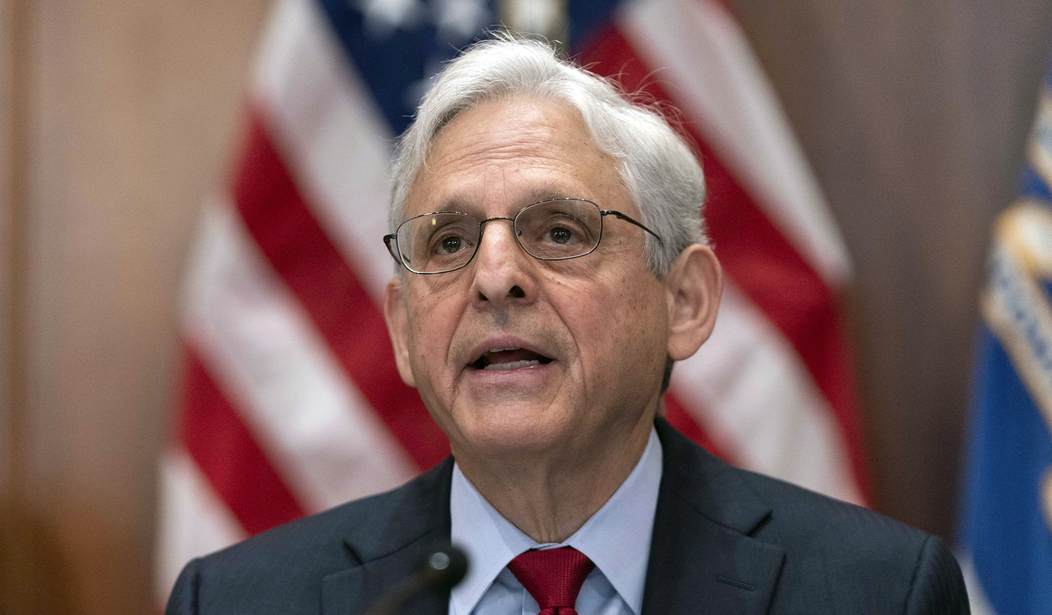The House of Representatives may vote this week on whether or not to hold Attorney General Merrick Garland in contempt of Congress. The House should vote, and the House should vote to hold Garland in contempt.
Garland has refused to turn over to the House Judiciary and House Oversight and Accountability Committees investigative materials subpoenaed by the two committees – two of the three committees authorized by a House resolution to conduct an impeachment inquiry into President Biden. The investigative materials in question are the audio recordings of Special Counsel Robert Hur’s interviews of Biden and Biden’s ghostwriter, Mark Zwonitzer. Transcripts of both sets of interviews have already been produced and turned over to the two committees in response to the subpoenas.
The saga began on February 12 of this year, when the chairmen of the three committees authorized to conduct the impeachment inquiry sent a letter to Garland requesting documents and records related to Special Counsel Hur’s report, in which Hur explained his decision against recommending that Biden be prosecuted, despite uncovering evidence during his investigation that Biden “willfully retained and disclosed classified materials after his vice presidency when he was a private citizen.” The documents and records requested included the audio recordings of Hur’s interviews with Biden and Zwonitzer.
Four days later, on February 16, the Department of Justice responded to the committees’ letter, but failed to produce any of the requested material. Consequently, on February 27, the Judiciary Committee and the Oversight Committee issued identical subpoenas compelling production of the documents and records. The subpoenas set a return date of March 7. DOJ failed to respond fully by March 7, so on March 9 the committees notified DOJ that its response had been inadequate.
Recommended
Hur had already been scheduled to appear before the Judiciary Committee on March 12, so the committees told DOJ they would accept production of the materials responsive to the subpoenas as late as 3 PM March 11. The DOJ again failed to produce the subpoenaed material, and instead, just two hours before Hur’s scheduled appearance, the DOJ produced redacted transcripts of Hur’s interviews with Biden – but failed to produce the audio recording of the Biden interviews, and failed to produce either a transcript or an audio recording of Hur’s interviews with Biden’s ghostwriter.
Two weeks later, the Judiciary committee tried again. A March 25 letter from the committee to Garland reminded Garland about his legal obligations and directed him to produce the subpoenaed materials no later than 12 PM on April 8 to avoid further action, including the invocation of contempt proceedings. The DOJ replied on April 8, but once again failed to respond properly to the subpoenas, handing over only the transcript of Hur’s interviews with Zwonitzer, but not the audio recordings of Hur’s interviews with either Biden or Zwonitzer.
The committees replied a week later, on April 15, in a letter to Garland that declared that his response to the subpoenas suggested he is “withholding records for partisan purposes and to avoid political embarrassment for President Biden.” The DOJ responded in an April 25 letter, again refusing to hand over the audio recordings.
At that point, the House committees decided they had had enough. The Judiciary and Oversight committees scheduled business meetings for May 17, at which the committees would mark up resolutions holding Garland in contempt of Congress. That morning, the DOJ announced that at Garland’s request, Biden had asserted executive privilege over the audio recordings. Nevertheless, the Judiciary Committee voted by 18-15 that afternoon to advance the resolution, and later that evening, the Oversight Committee voted by 24-20 to do the same.
Biden’s assertion of privilege over releasing the audio recordings of conversations the transcripts of which have already been released makes no sense and has no legal validity. Assertions of privilege are meant to protect the information in a conversation, not the means of recording that conversation; once the DOJ handed over the transcripts of Hur’s interviews with Biden and Zwonitzer, there was no reason not to hand over the audio recordings, despite the DOJ’s claim that doing so would “jeopardize future investigations.” What future witness is not going to cooperate with a federal investigation because he or she fears the audio recording of his interview being released, but not a transcript of his interview being released?
Moreover, Biden’s claim of privilege is three months late – it should have been asserted by March 7, the subpoenas’ original return date.
Further, Biden’s claim of a law-enforcement privilege is usually reserved for ongoing investigations. Hur’s investigation is not ongoing; he closed it last year.
An audio recording is considered superior evidence to a transcript – it is, by definition, a verbatim record, while a transcript is not. As the Judiciary Committee’s report makes clear, “Where audio recordings and transcripts diverge, because of ‘inflection in a speaker’s voice or by inaccuracies in the transcript,’ the audio recordings, not the transcripts, control.” The committees are well within their legal rights to demand production of the audio recordings they seek, and it is up to them, and not the executive branch, to determine what evidence they need for their inquiry.
“Is it live, or is it Memorex?” was a fabled advertising campaign of the 1970s and 1980s, and for good reason – Ella Fitzgerald’s amplified voice on Memorex tape could shatter glass just as easily as could her live voice. No one ever tried to shatter glass by reading out loud a transcript of Ella singing.
Biden’s assertion of privilege to protect the audio recordings of his interviews with Special Counsel Hur and Biden’s ghostwriter’s interviews with Hur are invalid, and Garland should be held in contempt of Congress for refusing for months to turn them over.
Jenny Beth Martin is Honorary Chairman of Tea Party Patriots Action.
























Join the conversation as a VIP Member